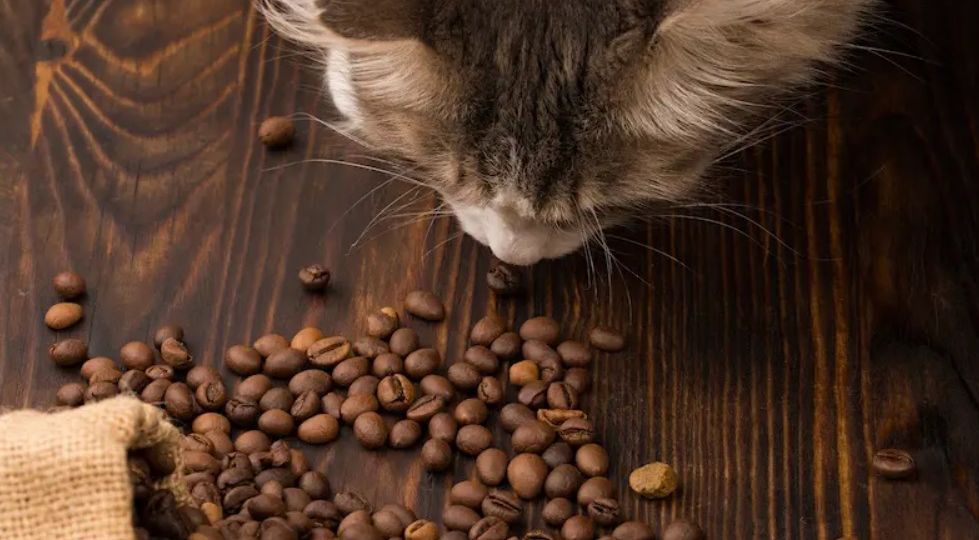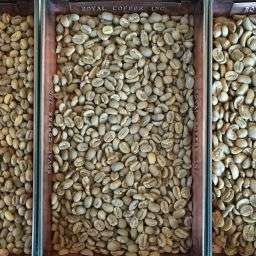
The question of whether cats can eat coffee beans is of paramount concern to pet owners, given the widespread presence of coffee in our homes. Understanding what foods are safe for pets is essential, as even seemingly harmless items can pose significant risks. This article delves into the specific dangers coffee beans present to cats, highlighting the importance of informed pet ownership and the need to safeguard our feline companions from potential harm.
Caffeine Toxicity in Cats
Caffeine, a prevalent stimulant in coffee beans, poses serious health risks to cats. Unlike humans, cats are highly sensitive to caffeine’s effects, which can lead to symptoms ranging from hyperactivity and increased heart rate to severe outcomes like vomiting, seizures, or even death.
The severity of these symptoms depends on the amount of caffeine ingested, underscoring the critical nature of preventing cats’ access to coffee beans.
Additional Harmful Components in Coffee Beans
Beyond caffeine, coffee beans contain oils and flavorings that can further endanger cats’ health. These components may cause digestive upset or, in more severe cases, pancreatitis, emphasizing the compound risks associated with coffee bean ingestion by felines.
Cats as Obligate Carnivores
Cats are obligate carnivores, meaning their diet must primarily consist of animal-based proteins. Their digestive systems are not equipped to process plant-based foods efficiently, including coffee beans. This dietary restriction highlights the incompatibility of coffee beans with a cat’s nutritional requirements, stressing the importance of adhering to appropriate feeding practices to maintain their health and well-being.
In conclusion, while coffee beans may seem like a benign curiosity to cats, the reality is starkly different. The risks associated with caffeine and other components in coffee beans necessitate vigilant pet ownership to prevent accidental ingestion. Understanding and respecting cats’ dietary needs as obligate carnivores further ensures their safety and health. By keeping coffee beans and similar substances out of reach, cat owners can protect their pets from unnecessary harm.
Recognizing Caffeine Poisoning
Caffeine poisoning in cats manifests through a variety of symptoms that require immediate attention. Cat owners should be vigilant for signs such as hyperactivity, increased heart rate, restlessness, vomiting, diarrhea, tremors, and seizures. These symptoms can appear shortly after ingestion and vary in severity based on the quantity of coffee beans consumed and the cat’s overall health.
Immediate Actions and Veterinary Treatments
Upon suspecting caffeine poisoning, immediate action is crucial. Firstly, assess the amount of coffee ingested and contact a veterinarian without delay. Do not attempt home remedies such as inducing vomiting unless directed by a professional, as this can cause additional harm.
Veterinary interventions might include administering activated charcoal to absorb toxins, inducing vomiting under controlled conditions, and providing intravenous fluids to help flush out the caffeine and maintain hydration. Monitoring and supportive care, especially for severe symptoms like tremors and seizures, are essential in managing caffeine toxicity.
Keeping Cats Safe from Caffeine
Preventing caffeine poisoning in cats involves proactive measures to restrict access to coffee beans and other caffeinated products. Here are key strategies:
- Store coffee beans, grounds, and caffeinated products in secure containers and locations out of cats’ reach.
- Be mindful of disposing of coffee grounds properly to ensure they are inaccessible to curious felines.
- Educate all household members about the dangers of caffeine to cats and the importance of keeping such items away from them.
- Consider cat-proofing areas where coffee and caffeinated products are stored or used regularly.
By implementing these safety measures, cat owners can significantly reduce the risk of caffeine poisoning, ensuring a safer environment for their feline companions.
These guidelines emphasize the critical importance of recognizing the signs of caffeine poisoning in cats and taking immediate steps to seek veterinary care. Furthermore, preventative measures play a vital role in safeguarding cats from the dangers of caffeine, highlighting the responsibilities of pet ownership in maintaining the health and well-being of our feline friends.
FAQs
How much coffee is dangerous for cats?
Even small amounts of coffee can pose significant risks to cats due to their sensitivity to caffeine. Symptoms of toxicity can occur with as little as 9 milligrams of caffeine per pound of a cat’s body weight. Given the high concentration of caffeine in coffee beans, any exposure should be considered potentially dangerous.
Are certain types of coffee beans safer than others for cats?
No types of coffee beans are considered safe for cats. All coffee beans contain caffeine, which is harmful to cats. Additionally, variations in caffeine content among different types of coffee beans do not mitigate the risk of caffeine toxicity. Therefore, all coffee beans should be kept away from cats regardless of their type.
Conclusion
This article has underscored the significant risks coffee beans pose to cats, from caffeine toxicity to the dangers of additional harmful components found in coffee beans. It has highlighted the importance of recognizing the signs of caffeine poisoning and outlined the immediate veterinary treatments required. The discussion on prevention and safety measures has provided practical advice for keeping cats safe from caffeine.
Cautious pet ownership is crucial in preventing caffeine poisoning in cats. Understanding what is safe for cats to consume and implementing strategies to keep harmful substances like coffee beans out of reach are key aspects of responsible pet care. By adhering to these guidelines, cat owners can ensure the health and well-being of their feline companions, safeguarding them against the dangers of caffeine toxicity.









